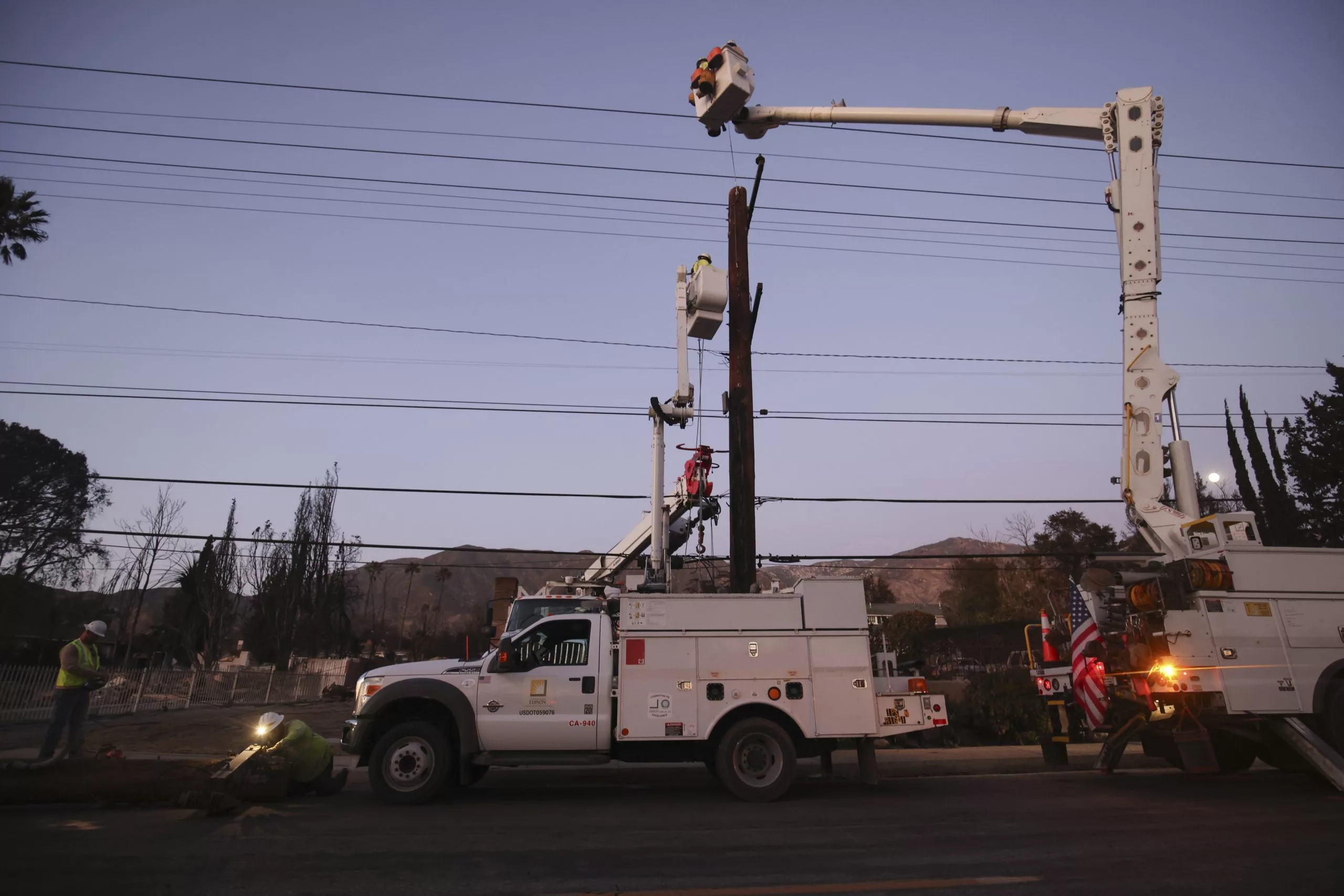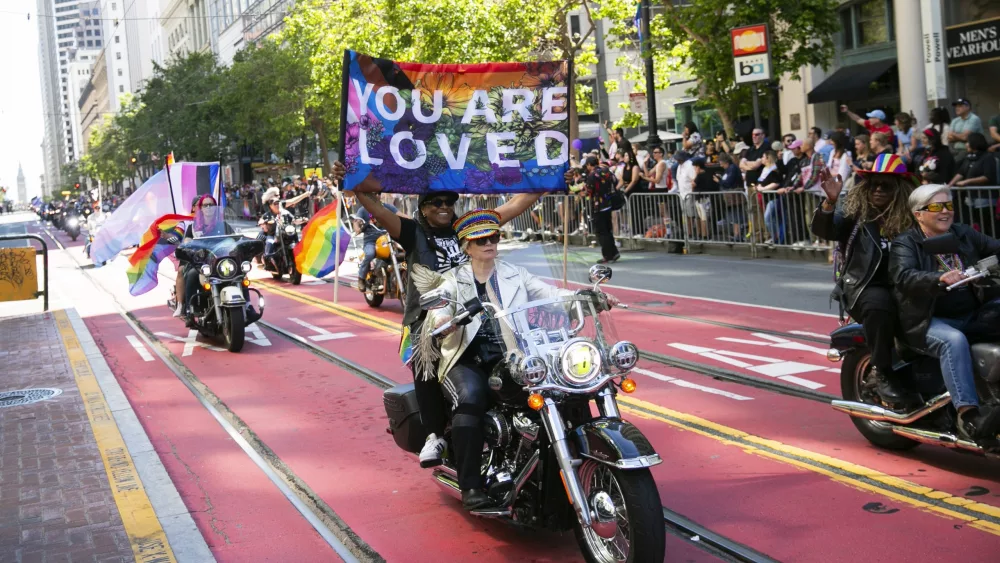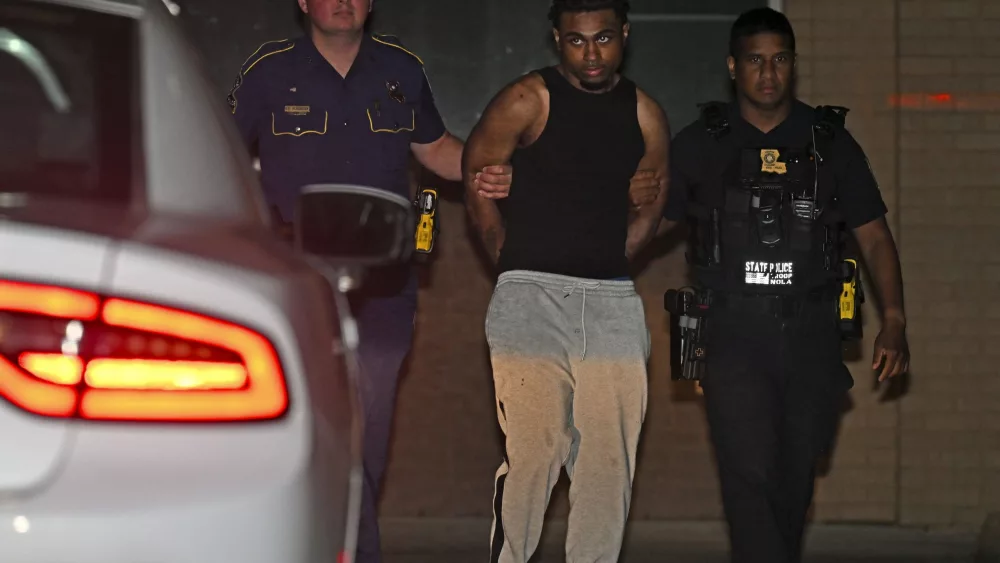LOS ANGELES (AP) — A lawsuit filed Monday against Southern California Edison claims the utility’s equipment sparked the deadly Eaton Fire burning just outside Los Angeles and Edison has acknowledged fire agencies are investigating whether its equipment may have started a smaller LA-area fire that broke out the same day.
Authorities still haven’t determined an official cause for any of the fires, which began last Tuesday amid hurricane-force winds and have killed at least 24 people in and around Los Angeles. A team from the Bureau of Alcohol, Tobacco, Firearms and Explosives is taking the lead on the investigations and whether there is a connection between any of them.
Firefighters are still battling to contain the Eaton Fire that broke out near Pasadena, destroying at least 7,000 homes and other structures and laying waste to entire neighborhoods. Attorneys representing a homeowner who lost their home said Monday that it is their belief that Edison’s equipment caused it. Video taken during the fire’s early minutes shows a large blaze directly beneath electrical towers.
“There is clear evidence from video footage, photographs, and witness accounts that the fire was caused by electrical equipment operated by Defendants Edison International and Southern California Edison,” the complaint states.
Gabriela Ornelas, an Edison spokesperson, said the utility is aware that a lawsuit has been filed, but has not yet reviewed it. “Our hearts remain with our communities during the devastating fires in Southern California, and we remain committed to supporting them through this difficult time,” she said.
Last week, Edison filed a report with the California Public Utilities Commission related to the Eaton Fire that said it has not received any suggestions that its equipment was involved in the ignition of that fire. “Preliminary analysis by SCE of electrical circuit information for the energized transmission lines going through the area for 12 hours prior to the reported start time of the fire shows no interruptions or electrical or operational anomalies until more than one hour after the reported start time of the fire,” the utility reported.
Elsewhere, Edison said in a filing with the California Public Utilities Commission that “a downed conductor was discovered at a tower” near the start of the Hurst Fire that broke out in the Los Angeles neighborhood of Sylmar. But the utility added it “does not know whether the damage observed occurred before or after the start of the fire.” That fire burned more than a square mile and is now mostly contained.
Meanwhile, a New Year’s Day fire that broke out at the same place as the Jan. 7 fire that ripped through Pacific Palisades to become the most destructive in Los Angeles city history, is a particular source of interest for residents who saw both blazes.
Asked about speculation that remnants of the Jan. 1 fire reignited in Pacific Palisades, LAPD Assistant Chief Dominic Choi said Monday that no causes have been ruled out.
The Los Angeles Fire Department reported a brush fire shortly after midnight on Jan. 1 in the area of Pacific Palisades. The initial report was 3 to 4 acres (1.2 to 1.6 hectares) of heavy brush burning under 15 mph (24 kph) winds. Water dropping helicopters and firefighters on the ground battled the blaze, which grew to 8 acres (3 hectares), and it was reported as contained less than five hours later, according to reports posted on the department’s website.
Residents say the wind-whipped blaze that ripped through that community started in the same location as a fire sparked by fireworks shot off just after midnight on New Year’s Day. The hurricane-force winds that day could have helped ignite any embers that remained. Officials have not directly attributed the Jan. 1 fire to fireworks.
“I still think it’s too coincidental that it would be in almost exactly the same spot. The fireworks went off that night. The firefighters were there,” said Sue Pascoe, a resident who lost her home and who runs the neighborhood news website Circling the News, which has been writing about the connection to the New Year’s Day fire since the Jan. 7 start.
The official investigations could take months, and with strong winds again in the forecast, the area is at risk for more fires that could further complicate efforts to determine cause.
Douglas Shores, an ATF spokesperson, declined to immediately comment on the causes of any of the fires.
Pacific Palisades resident Robert Trinkkeller said he saw the fire early on New Year’s Day, and watched aircraft drop water on it.
When he saw the fire break out on Jan. 7, Trinkkeller said he immediately thought it was linked.
“In my opinion, it was a rekindling of the six-day old fire,” he said. “It’s the exact same place.”
___
Associated Press writer Amy Taxin contributed from Santa Ana, Calif.
Brought to you by www.srnnews.com






